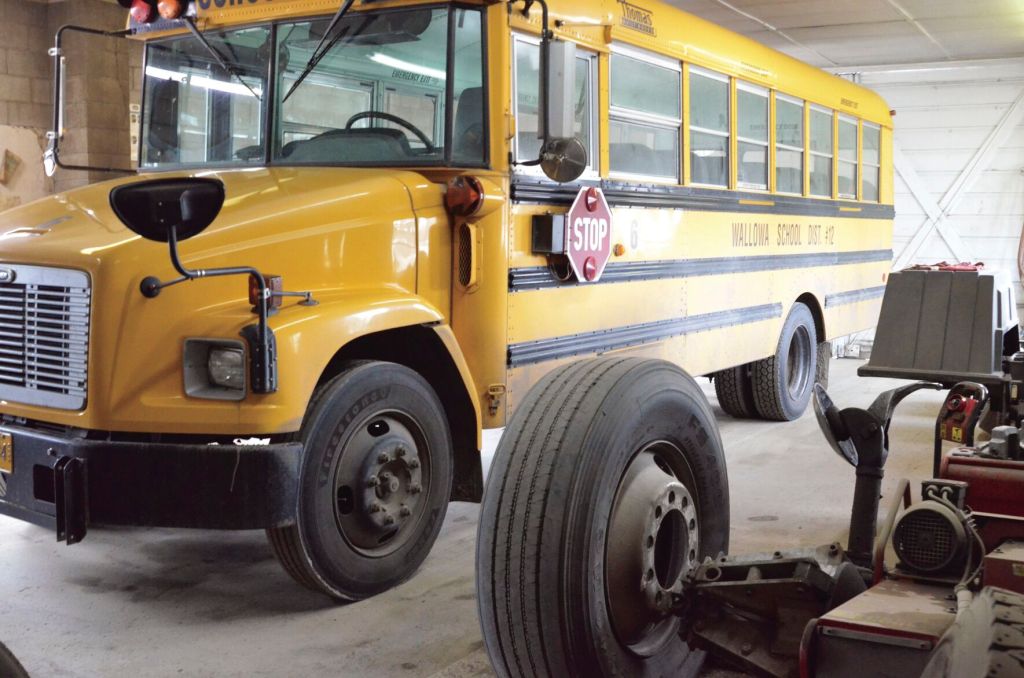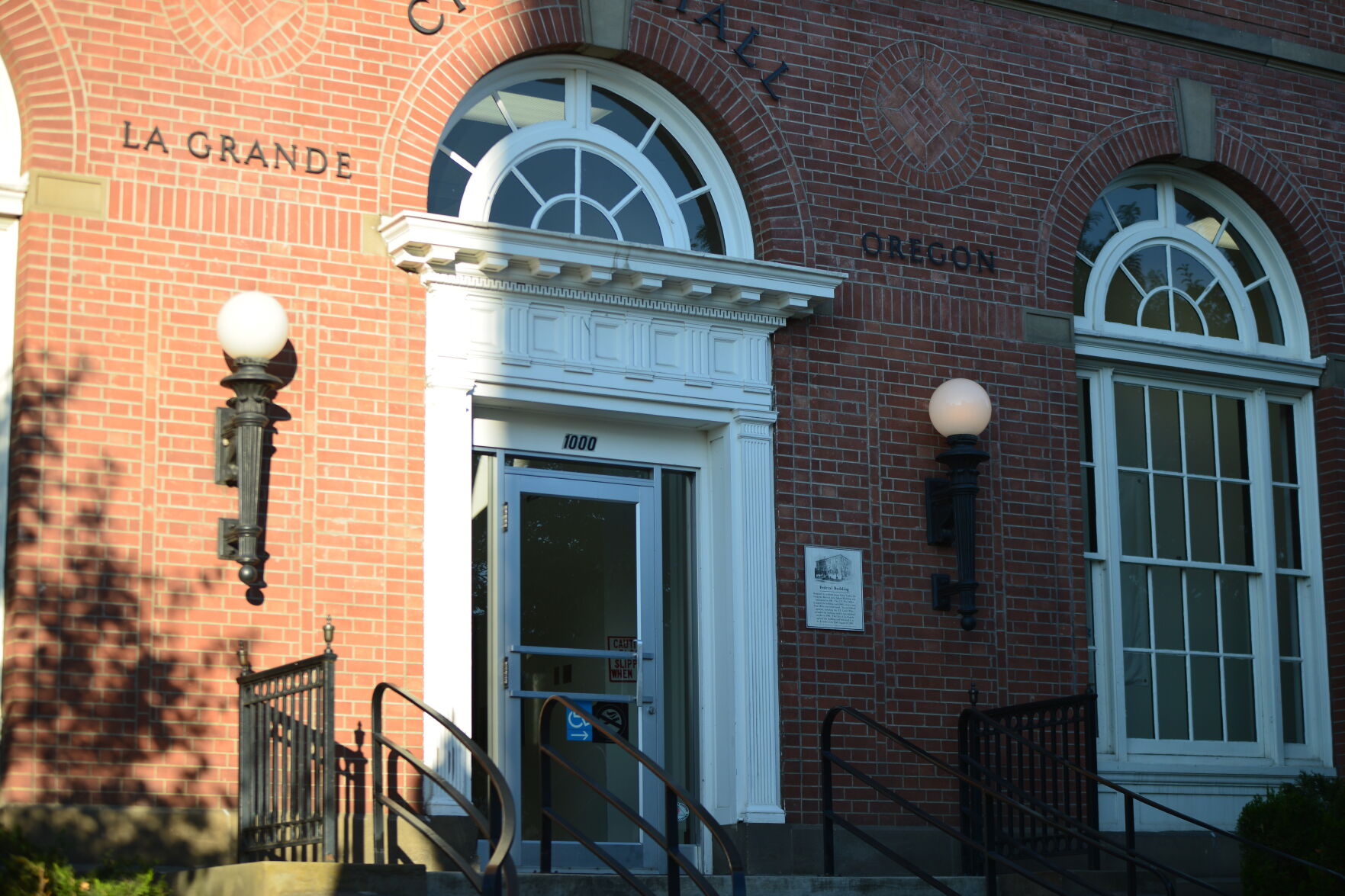Wallowa County’s Moffit Brothers are parking their buses
Published 7:00 am Wednesday, April 3, 2024

- All the buses and shop equipment at Moffit Brothers are up for sale as it prepares to go out of the school bus business July 1.
LOSTINE — Moffit Brothers Transportation is going out of the bus business.
The Lostine-based enterprise that has, for three-quarters of a century, bused students from Enterprise and Wallowa to school, is parking its buses and selling them to the Wallowa County Education Service District.
Gary Moffit, who will be 70 in May, said it’s time for him to step down and neither his son nor his daughter want to take up the venture.
“I’m ready to retire,” he said on Thursday, March 28.
The original Moffit brothers, Gary’s father Kenneth and Kenneth’s brother Max, are now deceased. They had another brother, Milo, who drove for them and also ran a local Ford dealership. Kenneth died recently, Gary said, and Max died in 2011. Only Gary’s mother, Roberta, survives of the elder generation, and she turned 97 April 2.
So the business is selling everything — about 15 school buses and 10 more used for tours. They’ll also sell their shop at Lostine and all the maintenance equipment it houses.
Long time busingMoffit Brothers started busing Wallowa County students in 1948 and hasn’t been absent from a school year since, Gary Moffit said. They’ve also taken on a number of other community-related projects, such as the shuttle during Chief Joseph Days that helps rodeo attendees avoid driving when they’ve had too much to drink. The company has provided similar shuttles for other events.
Landon Braden, superintendent of the Wallowa County Education Service District, said that when the ESD takes over the buses July 1, it likely won’t be doing the extra shuttles that are not education-related.
“That would probably be something that we would not do,” he said Monday. “I don’t think that’s something we would be interested in pursuing.”
Other agencies in the county “are better suited,” he said, and have the flexibility for such activities.
Braden said that as an education institution, it’s “not something in our scope.”
New at the helmBut the ESD is ready to take over the job of getting students to school.
Braden said 76 Wallowa students and about 130 Enterprise students take the bus — about 200 total each day, there and home.
The ESD also transports students to extracurricular events. But there’s a catch.
He said the state reimburses about 70% of the cost of busing Enterprise students and about 80% for Wallowa students. The state’s transportation grant covers getting students to school and home, as well as to academic-related field trips and tours. But it doesn’t cover sports events. The schools themselves must pick up that cost from within their budgets.
While a government agency like the ESD isn’t looking to make a profit like the private Moffit’s was, neither can operate at a loss.
“Whatever that cost is, we are obliged to do so,” Braden said. “We have to be sure we are being good stewards of the public’s money.”
The ESD’s plan is to build a cooperative for transportation. First, the ESD will hire a transportation coordinator, then drivers and then a dispatcher. They’ve posted the coordinator job, and the others will follow.
The coordinator, he said, will “help build this cooperative,” Braden said.
“It’s a big endeavor,” he said. “Anything on transportation is big lift for any school district.”
Usually districts have a transition period of a couple or three years, he said. “Here we are pulling it together in a matter of months.”
One advantage of having an education service district is it serves as a central hub for the districts it oversees. While Joseph Charter School handles its own transportation, Wallowa and Enterprise rely heavily on the ESD.
“It wouldn’t be possible without the help of the ESD,” he said.
Without that help, the districts would be left on their own and have to incur costs separately.
“At the end of the day, we’re doing it because the school districts asked us to,” Braden said.
The costBraden said that when the Education Service District learned Moffit Brothers was getting out of the busing business, the district put out bids and investigated what it would cost to get another company to take up where Moffit’s was leaving off.
He said the ESD pays Moffit Brothers about $1 million a year for transportation. The companies they checked into were asking about twice that.
Gary Moffit said he’ll be selling some of the buses to the ESD. They’re another reason he’s getting out of the business.
“The buses got to where it’s too expensive to replace them,” he said.
Moffit Brothers just bought one bus — a diesel — which cost about $165,000. But the trend these days is to move toward electric. He said those cost about $400,000 for a 70-passenger vehicle.
Another main reason Moffit wants out is the increasing number of regulations handed down by the state.
“It’s a lot of responsibilities,” he said. “Each year it gets worse for regulations and things.”
He said the state recently handed down a directive that by 2025 no buses older than 2007 would be allowed to be used to haul children. The state did ease that by extending it to 2026.
“This way, the school districts are going to use them a bit longer,” he said.
Braden is pleased with the working relationship the ESD has had with Moffit Brothers.
“Moffit’s has treated the school districts very well for a long time,” he said.
He added that, assuming the final cost of assuming the bus service comes in close to the $1 million the ESD paid Moffit Brothers, he’ll be satisified.
“If it came in the same, we would be happy,” he said.




